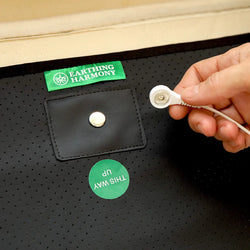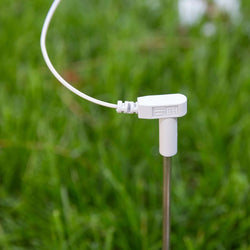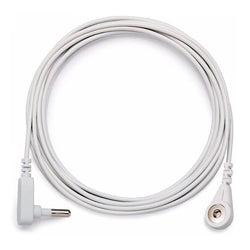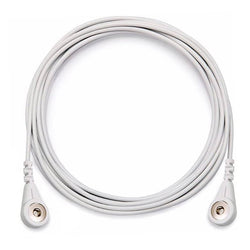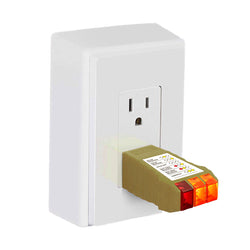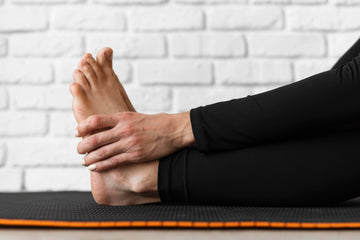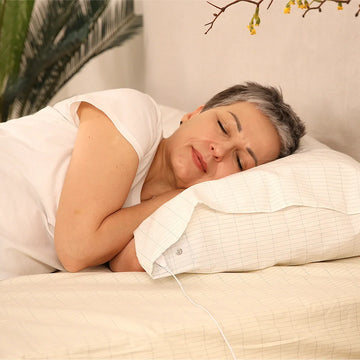Instantly upon grounding, you begin to accumulate health benefits, and the longer you ground, the better. Around 30-40 minutes a day is a good starting point to initiate the healing process. However, it's important to note that the nighttime presents an optimal opportunity for the body's major healing and regeneration processes. This is why using earthing sheets during sleep can be exceptionally beneficial, as it allows you to harness the Earth's healing energy throughout the night, promoting overall well-being and vitality.
Grounding, also known as earthing, is a practice that involves connecting with the Earth's surface to rebalance the body's energy and promote overall well-being. Many people are increasingly recognizing the positive effects of grounding on their physical and mental health. In this article, we will delve into the concept of grounding, explore its benefits, discuss how to determine the ideal grounding duration, and highlight some grounding techniques and practices. Additionally, we will address common misconceptions surrounding grounding.
Understanding the Concept of Grounding
Grounding is based on the principle that the Earth carries a negative charge, and when we come into direct contact with it, we can absorb its electrons. This process can potentially neutralize free radicals in our body, which are highly reactive molecules associated with inflammation and various health problems.
Imagine walking barefoot on a sandy beach, feeling the warm grains of sand beneath your feet and the gentle waves of the ocean lapping at the shore. As you stroll along the coastline, you are not only connecting with nature but also grounding yourself. The Earth's surface, particularly when it is moist or conductive, allows for the transfer of electrons from the ground to our bodies.

When we ground ourselves, the Earth's electrons have been found to help reduce inflammation, improve sleep quality, boost immune function, decrease stress levels, and even support cardiovascular health. It's fascinating to think that something as simple as direct contact with the Earth can have such profound effects on our well-being.
The Science Behind Grounding
A growing body of scientific research suggests that grounding can have numerous physiological benefits. In recent studies, researchers have used advanced techniques to measure the electrical activity in the human body before and after grounding sessions. The results have been remarkable.
One study conducted at a university hospital found that grounding can significantly reduce markers of inflammation in the body. Participants who engaged in grounding activities showed a decrease in pro-inflammatory cytokines, which are molecules associated with chronic inflammation.
This reduction in inflammation can have far-reaching effects on our overall health, as chronic inflammation is linked to conditions such as arthritis, heart disease, and even cancer.
Furthermore, grounding has been shown to improve sleep quality. In a sleep study involving individuals with insomnia, researchers found that those who slept on grounded sheets experienced a significant improvement in their sleep patterns. The participants reported falling asleep faster, experiencing fewer nighttime awakenings, and waking up feeling more refreshed and energized.
But how does grounding achieve these remarkable effects? It is believed that when we come into contact with the Earth, the excess positive charge in our bodies is neutralized by the influx of electrons from the Earth's surface. This restoration of the body's negatively charged electrical balance helps regulate various physiological processes, leading to improved well-being.
The Historical Context of Grounding
Grounding practices trace their origins back to ancient civilizations, where people often walked barefoot, slept on the ground, or utilized conductive materials like leather to connect with the Earth's energy.
Native American tribes, for example, believed that direct contact with the Earth was essential for maintaining physical and spiritual balance. They not only embraced direct contact with the Earth but also harnessed grounding benefits by wearing full leather moccasins, which are inherently conductive.
These traditional shoes, like you see on the picture are very similar to the grounding shoes featured on our website, allowing individuals to experience the benefits of grounding in a modern context.  However, with the advancement of modern lifestyles and the widespread use of insulating materials such as rubber and plastic, our direct connection with the Earth has significantly diminished. We now spend most of our time indoors, separated from the natural world by layers of concrete, carpet, and synthetic materials.
However, with the advancement of modern lifestyles and the widespread use of insulating materials such as rubber and plastic, our direct connection with the Earth has significantly diminished. We now spend most of our time indoors, separated from the natural world by layers of concrete, carpet, and synthetic materials. This disconnection from the Earth's energy is believed to contribute to various health issues today. Some researchers argue that the rise in chronic inflammation, sleep disorders, and stress-related conditions could be linked to our limited exposure to grounding. By reestablishing this connection, we may be able to restore balance and promote optimal health.
This disconnection from the Earth's energy is believed to contribute to various health issues today. Some researchers argue that the rise in chronic inflammation, sleep disorders, and stress-related conditions could be linked to our limited exposure to grounding. By reestablishing this connection, we may be able to restore balance and promote optimal health.
Fortunately, there are simple ways to incorporate grounding into our daily lives. Walking barefoot on grass or sand, gardening, or even hugging a tree can all provide opportunities for grounding. Additionally, there are grounding sheets and grounding amts available that allow for indoor grounding, enabling us to reap the benefits even when we can't be outdoors.
As we continue to explore the science behind grounding and rediscover its historical significance, it becomes clear that our connection with the Earth is not merely a metaphorical concept but a tangible source of healing and well-being.
The Benefits of Daily Grounding
Daily grounding has been associated with a wide range of benefits for both physical and mental health. Let's explore some of these advantages:
Physical Health Advantages
Grounding has been found to contribute to pain reduction and faster healing by reducing inflammation in the body. When we connect with the Earth's surface, the negatively charged electrons can neutralize free radicals, which are known to cause inflammation. This can lead to a decrease in pain and a faster recovery process for injuries or wounds.
Additionally, studies suggest that grounding may also help regulate blood pressure and improve overall cardiovascular function. When we ground ourselves, our bodies can absorb the Earth's electrons, which can help improve blood flow and circulation. This, in turn, can lead to better cardiovascular health and a reduced risk of heart-related issues.  Furthermore, grounding can support the body's natural circadian rhythm, leading to better sleep quality and improved energy levels. By reconnecting with the Earth's natural electromagnetic field, our bodies can synchronize with its natural rhythms. This can help regulate our sleep-wake cycle, promoting restful sleep and increased daytime energy.
Furthermore, grounding can support the body's natural circadian rhythm, leading to better sleep quality and improved energy levels. By reconnecting with the Earth's natural electromagnetic field, our bodies can synchronize with its natural rhythms. This can help regulate our sleep-wake cycle, promoting restful sleep and increased daytime energy.
Mental Health Benefits
Grounding techniques have also been recognized for their potential to alleviate stress, anxiety, and depression. When we ground ourselves, we can feel more connected to the present moment and less overwhelmed by our thoughts and emotions. This can help reduce stress levels and promote a sense of calm and relaxation.
Regular grounding practices can also help individuals feel more centered, calm, and emotionally balanced. By connecting with nature, grounding promotes a sense of mindfulness and offers a natural way to relax and recharge. When we take the time to ground ourselves, we can cultivate a deeper connection with the Earth and find solace in its stability and grounding energy. In addition to these benefits, grounding has also been associated with improved cognitive function and increased focus. By reducing stress and promoting a sense of calm, grounding can help clear the mind and enhance mental clarity. This can lead to improved concentration, productivity, and overall cognitive performance.
In addition to these benefits, grounding has also been associated with improved cognitive function and increased focus. By reducing stress and promoting a sense of calm, grounding can help clear the mind and enhance mental clarity. This can lead to improved concentration, productivity, and overall cognitive performance.
Overall, daily grounding offers a multitude of benefits for both physical and mental health.
By incorporating grounding practices into our daily routines, we can experience reduced pain, improved cardiovascular health, better sleep quality, decreased stress levels, and enhanced mental well-being. So, take a moment each day to connect with the Earth and reap the numerous rewards it has to offer.
Determining the Ideal Grounding Duration
The ideal duration for grounding each day may vary depending on factors such as personal preferences and individual needs. Considering the following aspects can help you determine the best grounding time for yourself:
Factors Influencing Grounding Time
Your daily schedule, available time, and lifestyle commitments can influence the duration of your grounding practice. While even a few minutes of grounding can be beneficial, aiming for at least 30 minutes to an hour per day is recommended to experience noticeable results.
Personalizing Your Grounding Routine
Experiment with different grounding durations to find what works best for you. Some individuals already receive benefits from shorter, more frequent grounding sessions throughout the day, while others might prefer longer grounding periods in one sitting. Pay attention to how your body and mind respond to different durations, and adjust accordingly.
Grounding Techniques and Practices
There are various ways to incorporate grounding into your daily routine. Here are some indoor and outdoor grounding methods to consider:
Indoor Grounding Methods
Using grounding sheets or mats that are plugged into the ground port of an electrical outlet to facilitate the flow of Earth's electrons.
Outdoor Grounding Techniques
Common Misconceptions About Grounding
Despite the increasing popularity of grounding, there are still some misconceptions surrounding this practice. Let's address a few:
Debunking Grounding Myths
Fact: While outdoor grounding offers an immediate and direct connection with the Earth, there are also indoor grounding options available, as mentioned earlier.
Fact: Grounding has shown to have numerous health benefits that has been proven by science.
Fact: Incorporating grounding into your daily routine can be flexible and adaptable to your lifestyle. Especially with something as simple as grounding sheet, we all need to sleep!
Addressing Grounding Skepticism
It is important to acknowledge that some people may be skeptical about the effectiveness of grounding. However, with the growing body of scientific evidence, personal testimonials, and historical practices, grounding is becoming more widely accepted as a holistic practice that can support overall well-being. Exploring grounding techniques and experiencing the benefits firsthand is the best way to form a personal opinion.
In conclusion, grounding each day can provide various physical and mental health advantages. By understanding the concept of grounding, determining the ideal duration, and practicing grounding techniques, individuals can harness the power of the Earth's energies to promote their well-being. Let go of misconceptions and skepticism, and embrace the practice of grounding to enhance your connection with nature and improve your overall quality of life.







 Shoes
Shoes
 Boots
Boots
 Sandals
Sandals

 Shoes
Shoes
 Boots
Boots
 Sandals
Sandals

